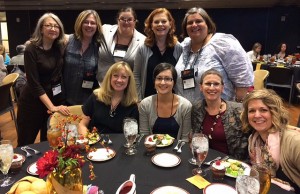RESEARCH NETWORK FORUM at CCCC
April 6, 2016 from 8:30AM – 5:00PM in Houston, TX
Proposal Deadline: Saturday, October 31, 2015
Submit proposals for Work In Process here:
https://sites.google.com/site/researchnetworkforum/home/proposals
****
Please join the Research Network Forum as a Work-in-Progress Presenter and/or serve as a Discussion Leader and/or as a publication Editor.
The Research Network Forum, founded in 1987, is a pre-convention forum at CCCC which provides an opportunity for established researchers, new researchers, and graduate students to discuss their current projects and receive mentoring from colleagues in the discipline. The forum is free to CCCC convention registrants. As in past years, RNF 2016 features morning plenary addresses from Cindy Selfe, Howard Tinsberg, and Todd Taylor focusing on “Writing Strategies for Action,” the 2016 CCCC theme.
The RNF welcomes Work-in-Progress Presenters (WiPPs) at any stage of their research and at any position in the composition/rhetoric field (graduate student, junior faculty, tenured faculty, administrator, and/or independent scholar). During roundtable discussions, WiPPs are grouped by thematic clusters where they discuss their current projects at both a morning and an afternoon roundtable session in 8 – 10 minute presentations and benefit from the responses of other researchers. Unless otherwise indicated, WiPPs are scheduled for both morning & afternoon sessions. Collaborating researchers are placed at separate tables to ensure the most networking opportunities on their research projects.
Discussion Leaders (DLs) lead the thematic roundtables and mentor WiPPs; this role is key to the RNF. We ask that Discussion Leaders are experienced, established researchers. Serving as a Discussion Leader provides a valuable service to the composition/rhetoric community. Discussion Leaders may serve at the morning session, afternoon session, or all day, and they are welcome to also participate as WiPPs.
Participants also include Editors of printed and online composition/rhetoric publications (journals, edited collections, and book series), who discuss publishing opportunities for completed works-in-progress in an open, roundtable format. We encourage Editors to bring copies of the publications they edit/publish and announcements for display at the RNF meeting. Editors are encouraged to serve as Discussion Leaders and may also participate as WiPPs.
To submit a proposal (open August 15 to October 31), visit our website, http://researchnetworkforum.org
Please fill out a form for each of the roles in which you would like to participate—Work-in-Progress Presenter, Discussion Leader, and/or Editor. You may appear on the RNF Program in addition to having a speaking role at the Conference on College Composition & Communication.
Questions? Email Co-Chairs Risa P. Gorelick and Gina M. Merys: rnfchairs@gmail.com

